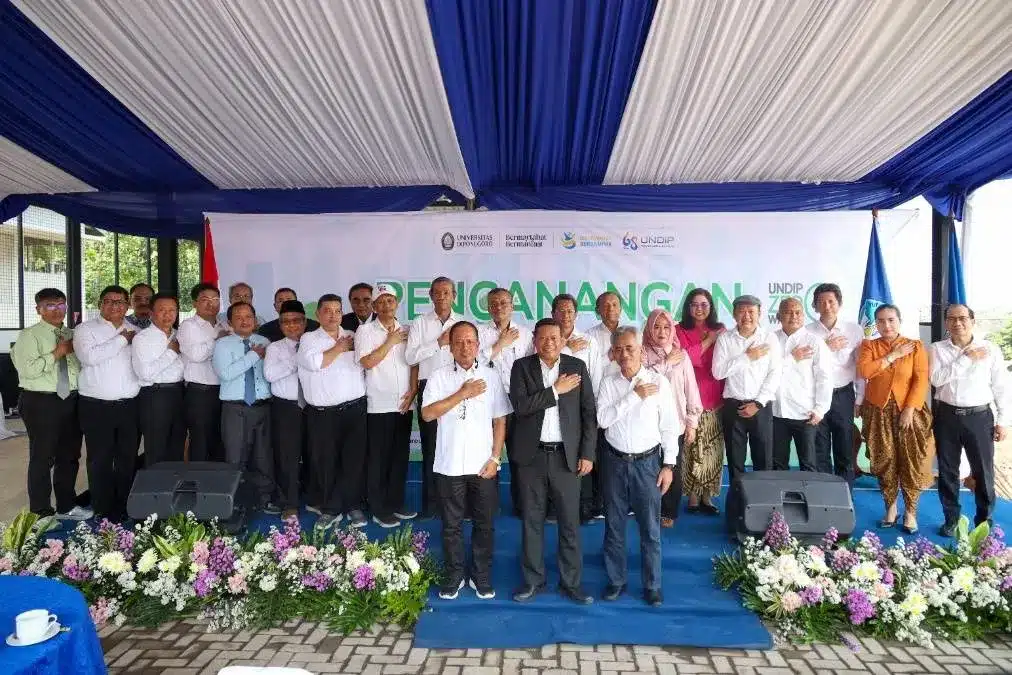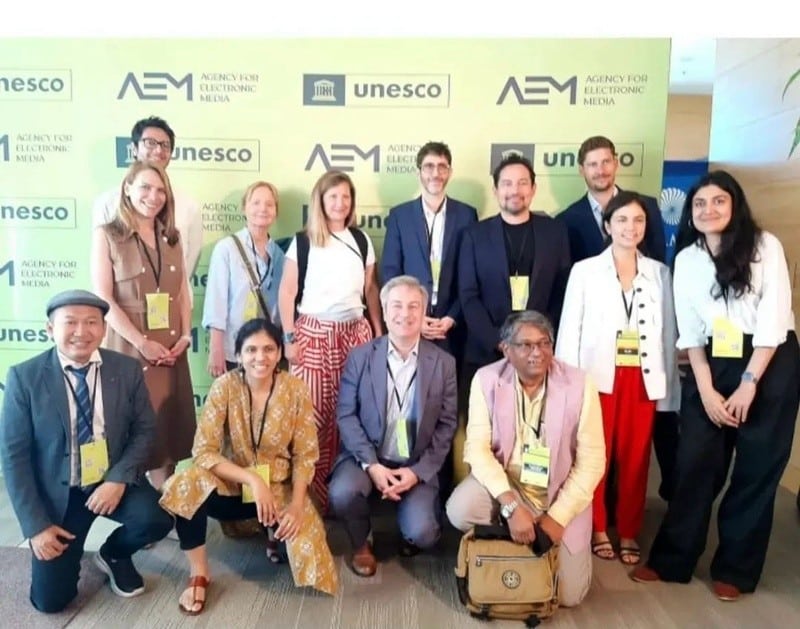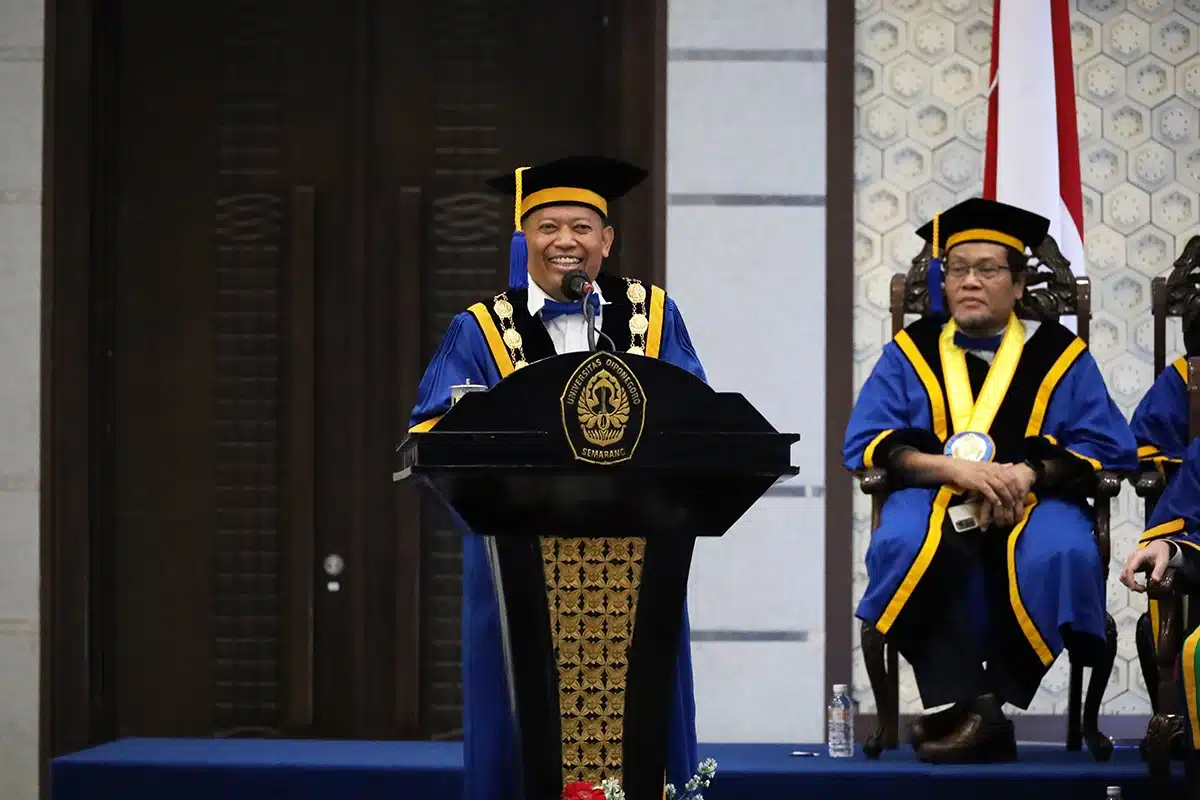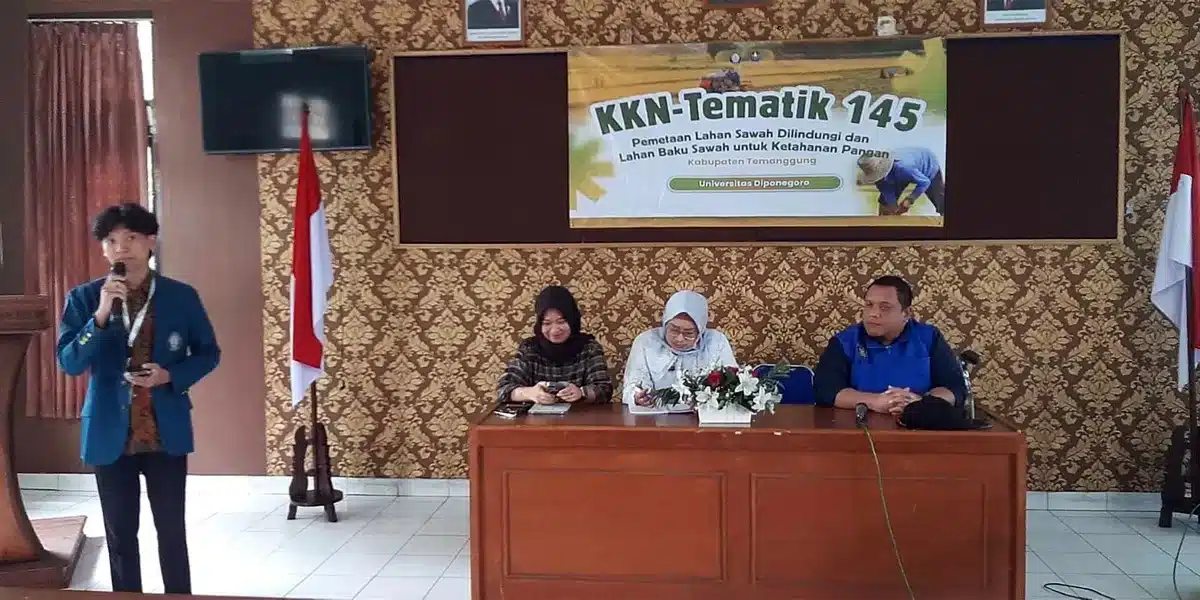UNDIP, Semarang (October 17, 2025) – Universitas Diponegoro (UNDIP) officially launched the “UNDIP Zero Waste” movement at the Integrated Waste Management Facility (Tempat Pengelolaan Sampah Terpadu / TPST) on the Tembalang Campus, Friday (17/10). The event, held as part of UNDIP’s 68th Anniversary celebration, marks a concrete step by the university to build a clean, healthy, eco-friendly, and sustainable campus ecosystem in line with the spirit of “Noble and Valuable UNDIP” and in support of the national “Diktisaintek Berdampak” (Impactful Higher Education, Science, and Technology) program.
The UNDIP Zero Waste declaration follows Rector’s Regulation No. 5 of 2023 on Waste Management within the university environment, which emphasizes the implementation of the 5R principles — Refuse, Reduce, Reuse/Repair, Recycle, and Rot — across all academic, research, educational, and service activities.
UNDIP Rector Prof. Dr. Suharnomo, S.E., M.Si., in his remarks, expressed appreciation for the hard work of the TPST team and researchers who continuously innovate. “Thank you for all the support. Hopefully, we can continue to be more noble and valuable,” he said. He emphasized that the Zero Waste movement is UNDIP’s concrete response to Indonesia’s national waste emergency and to the Indonesian President’s call for universities to play an active role in providing environmental solutions.
“UNDIP has been appointed as the central waste management hub for Jawa Tengah and will serve as a model for other universities. We want to prove that campuses are not only places to gain knowledge but also centers of science- and technology-based solutions to address environmental challenges,” he affirmed.
Prof. Suharnomo further explained that a range of innovations from UNDIP’s academic community—from pyrolysis tools to integrated management systems—will be reported to the Ministry of Higher Education, Science, and Technology as real contributions supporting national waste management policies. This program not only focuses on the internal university environment but also extends its impact to the surrounding communities through collaborative models such as neighborhood-based (RT-based) waste management projects in Pemalang Regency. “If both the campus and community models succeed, UNDIP will stand as a real example of science-based sustainable waste management,” he added.
In his report, Dr. Bina Kurniawan, S.KM., M.Kes., Head of the Occupational Health, Safety, and Environmental Unit (K3L), stated that since 2022, UNDIP has developed the TPST as a center for innovation and science-based waste management learning. “In the past, all campus waste was sent to the Jatibarang landfill. Now, thanks to cross-faculty research support and rectorate policies, most waste can be processed independently,” he explained.
He detailed that organic waste is now converted into compost, branch and twig waste is processed into liquid smoke through pyrolysis technology, and food waste is managed with maggot cultivation to support the chicken farm at the TPST—creating a campus circular economy. Meanwhile, inorganic waste is treated using a plastic pyrolysis machine developed by Prof. Ir. Didi Dwi Anggoro, M.Eng., Ph.D., IPU, ASEAN Eng., which converts plastic waste into gasoline fuel, already tested successfully on lawnmowers. UNDIP has also introduced a plastic vending machine at the University Library in collaboration with BSI, enabling campus residents to exchange waste for digital points.
For hazardous (B3) waste, UNDIP has implemented a proper transport and temporary storage system according to standards, ensuring safe handling and preventing improper disposal. “Our hope is that, in the future, no residual waste will end up in landfills—everything can be processed into new resources,” said Dr. Bina. He added that the TPST has now become a reference site for schools, institutions, and local governments, and will represent Jawa Tengah in the National Office Health and Safety Assessment conducted by the Ministry of Health.
The Zero Waste movement is strengthened by UNDIP’s recycling experts, who drive various innovations, including:
- Prof. Ir. Didi Dwi Anggoro, M.Eng., Ph.D., IPU, ASEAN Eng. – Expert in converting plastic waste into fuel oil.
- Prof. Widayat – Expert in processing organic (leaf) waste into compost and vegetable planting media.
- Dr. Vivi Endar Herawati, S.Pi., M.Si. – Expert in using animal waste and food waste through fermentation as fish feed.
- Dr. Ir. Mulyono, M.Si. – Expert in maggot cultivation for chicken feed.
- Prof. Dr. Ir. Fronthea Swastawati, M.Si. – Expert in processing twigs and branches into pyrolytic liquid smoke.
- Prof. Dr. Ir. Sriyana, M.S. – Expert in waste and environmental management within the UNDIP reservoir area.

As a symbol of shared commitment, the event concluded with the signing of the UNDIP Zero Waste Declaration by the Rector, Chair of the Academic Senate (SA), Chair of the Board of Trustees (MWA), and the deans of UNDIP faculties. The declaration affirms the university’s commitment to rejecting single-use products, reducing waste, promoting reuse and digital documentation, establishing repair corners for electronic devices, and implementing waste sorting and composting at the source.
This declaration marks an important milestone in UNDIP’s journey toward becoming a green and sustainable campus, while supporting the implementation of the 17 Sustainable Development Goals (SDGs)—particularly Good Health and Well-being (SDG 3), Quality Education (SDG 4), Affordable and Clean Energy (SDG 7), Sustainable Cities and Communities (SDG 11), and Climate Action (SDG 13).
The event, held in an atmosphere of collaboration and enthusiasm, concluded with a visit to TPST’s waste management facilities and technology displays. The movement is expected to inspire other universities across Indonesia to build Zero Waste Campuses that are not only environmentally friendly but also socially and economically empowering. (Public Communication/ UNDIP/ DHW)










